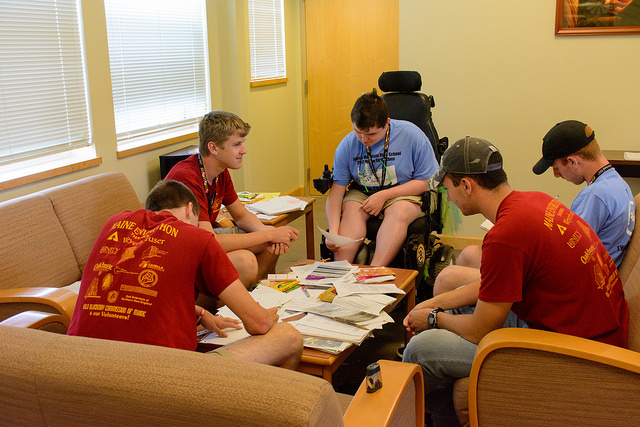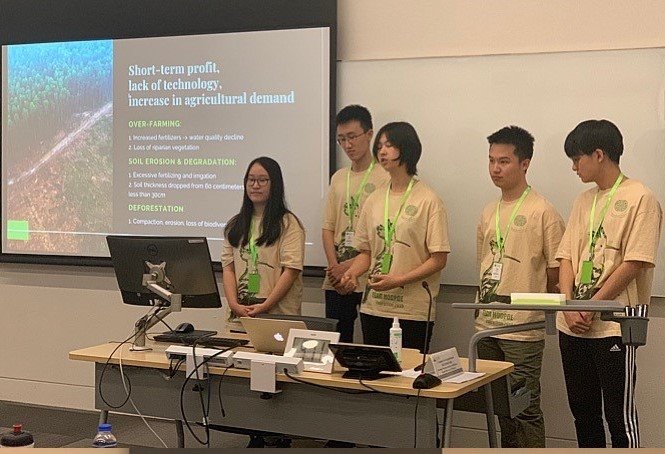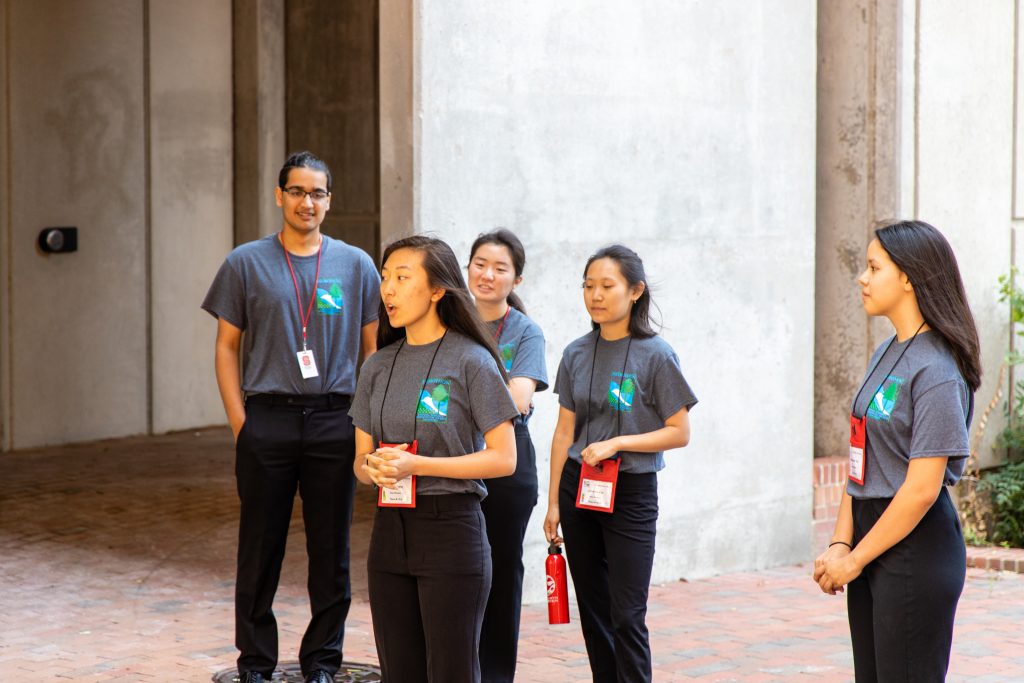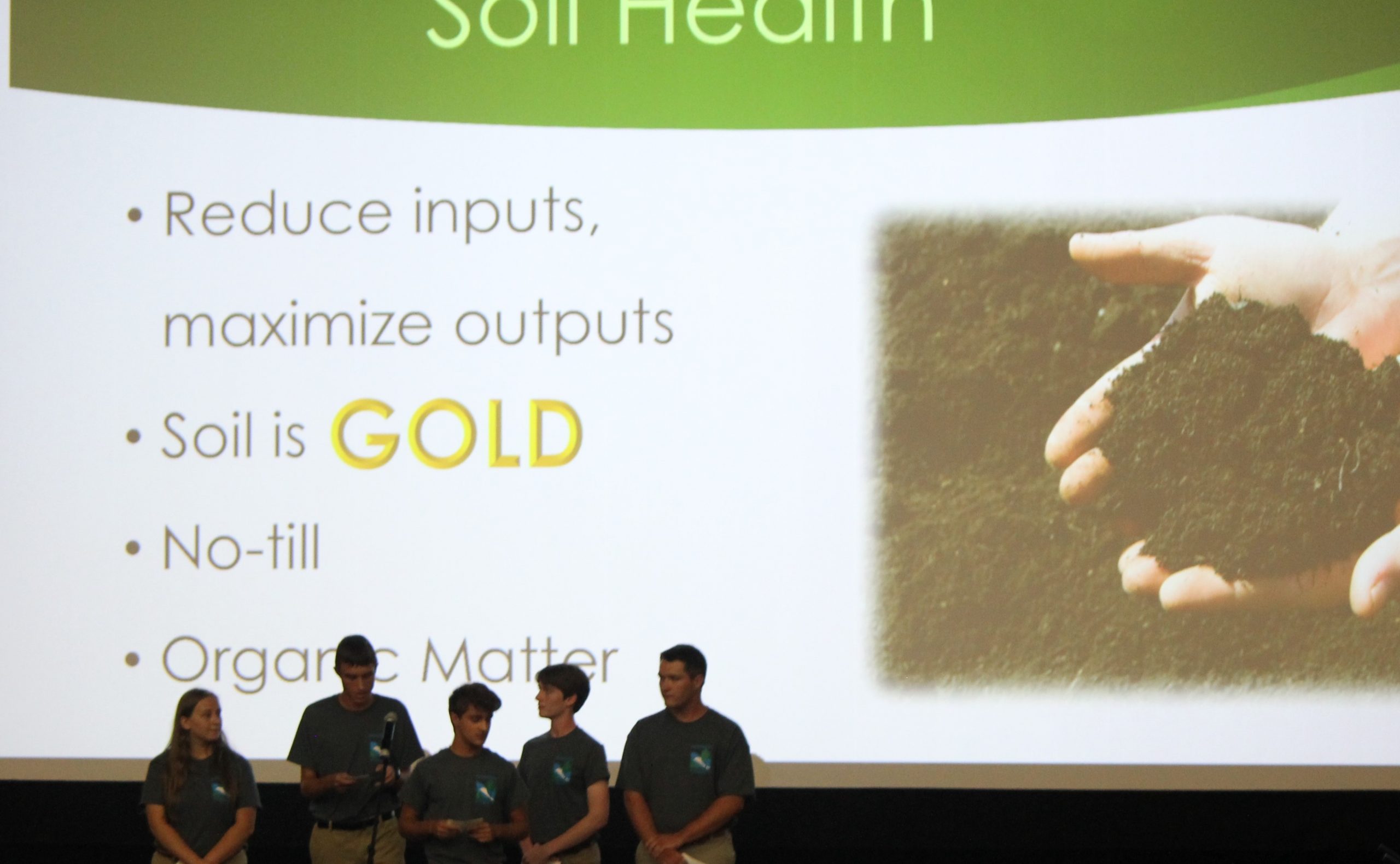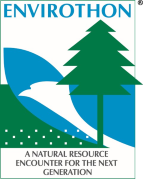Oral Presentations
The ability to communicate clearly and effectively is a crucial skill when addressing environmental issues, particularly in situations where collaborative efforts are required to develop practical solutions and affect change. Envirothon strives to promote the development of oral communication skills in each student participant, which is why the oral presentation is emphasized as a major component of the total competition score at the NCF-Envirothon annual international competition.
Using the knowledge learned from the 5 Areas of Study, teams are given the opportunity to address a real-world environmental/natural resource issue and their ideas on addressing it. Working as a unit, the team must analyze a given scenario, develop a plan of action to address it, and then present their plan to a panel of judges for scoring.
- Preparation
On the day prior to the oral presentation judging, resource professionals train students on information relevant to the topic/problem on which they will be required to present. After receiving the presentation problem, the teams are separated from each other, usually in a classroom or other workspace, to allow for focused concentration. The teams have several hours to prepare an effective presentation, using only the resources provided by the NCF-Envirothon. Teams may use their field notebooks as a resource, but no other materials are permitted (e.g., textbooks, field guides, etc.). An adult, other than the team's volunteer advisor, is assigned to each team to answer questions and run errands . At the end of the allotted preparation period, all materials are collected and secured until the team's presentation.
- Preliminary Round
On the day of judging, oral presentations are conducted in two parts: Preliminary (aka preliminaries) and Finals. During the preliminary round, each team gives a 20-minute presentation to a panel of five judges, followed by a ten-minute question and answer period. Each team receives a group score based on the overall quality of their presentation, their preparation and presentation of a plan, and their comprehensive consideration of relevant issues to the resource problem (see Judges' Criteria and Scoring below). All five team members must participate orally in the presentation.
In this round, the high and low scores awarded by the judging panel are discarded and the remaining scores are averaged to produce a final score. Those preliminary scores are then combined with the team scores from the five station tests taken earlier in the week. The cumulative scores are ranked, and the top three scoring teams are determined. Those three teams then advance on to the final round of the competition!
- Final Round
During the final round, the top three teams will give their presentation to a new panel of judges (consisting of 5-7 individuals) for a new score. That new final score is calculated in the same manner as in the preliminary round. However, the score for the final round replaces the preliminary presentation score for final determination of team rank. The team with the highest combined score after the final round of the oral competition wins the NCF-Envirothon competition!
See Envirothon Rules and Regulations for more details about oral presentations.
